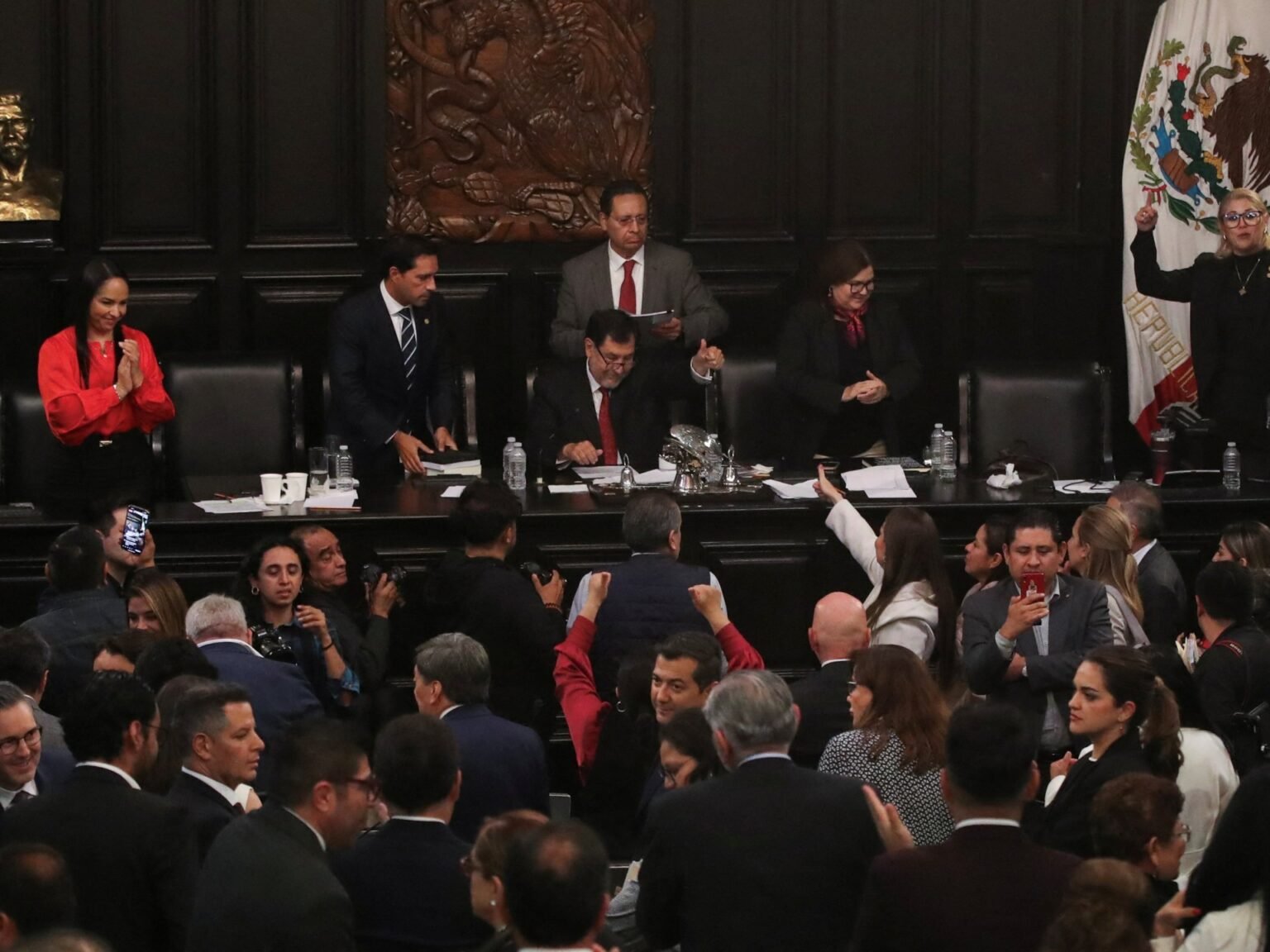Controversial judicial reforms pushed by outgoing President Andres Manuel Lopez Obrador in Mexico have been approved by the Senate with an 86-41 vote. This overhaul will allow voters to elect judges at all levels, including the Supreme Court. The main goal of these changes is to make the judiciary less susceptible to corruption and white-collar crime. However, critics argue that these reforms could undermine judicial independence and weaken the system of checks and balances.
The approval of the reform has sparked protests and concerns both domestically and internationally. Some fear that elected judges could be influenced by criminal organizations, especially in a country where bribery and intimidation are common tactics used by powerful cartels. The reduction in the number of Supreme Court judges, shortened terms, and changes to qualifications have also been met with skepticism. Critics worry that the high number of positions up for election could make it challenging for citizens to be well-informed about the candidates.
The unresolved debate over judicial independence and the implications of these reforms have strained Mexico’s relations with countries like the United States and Canada. US ambassador Ken Salazar has expressed concerns that politically motivated and inexperienced judges could pose a significant risk to Mexican democracy. The United Nations special rapporteur on the independence of judges and lawyers has also raised alarm about the potential consequences of the reform. Human Rights Watch has urged lawmakers to reject the proposals, citing concerns about the erosion of judicial independence and human rights standards.
Despite the opposition, the reform is set to move forward as it awaits approval at state-level congresses where the ruling coalition has sufficient support. Once published in Mexico’s official gazette, the changes will take effect. Protests and demonstrations by opponents of the law have been ongoing, with clashes leading to the suspension of the Senate debate on multiple occasions. The fierce resistance from critics underscores the deep divisions and concerns surrounding the controversial overhaul.
Lopez Obrador has defended the reform, accusing protesters of protecting the interests of the political elite. He insists that the changes are necessary to combat corruption and ensure a fairer, more transparent judiciary. However, the debate over the risks posed by elected judges and the potential impact on judicial independence continues. The implementation of the reform will be closely watched both domestically and internationally as Mexico navigates this significant shift in its judicial system.











